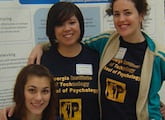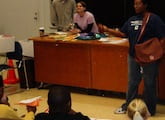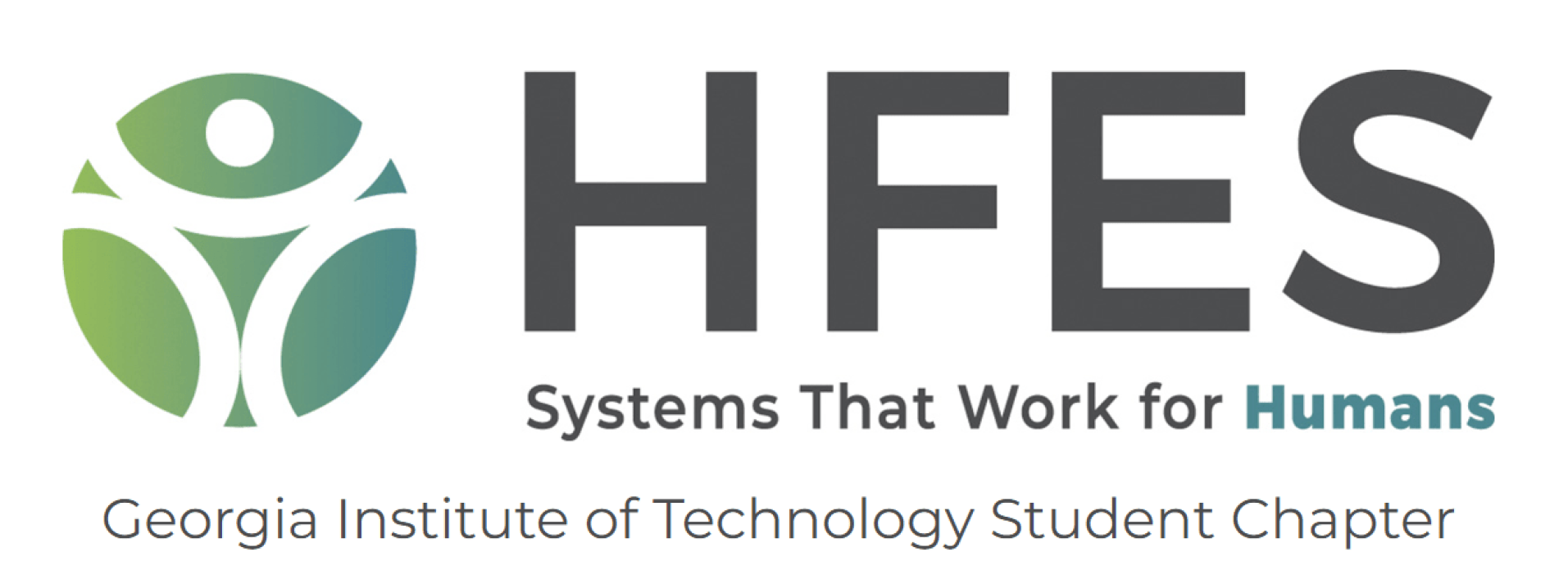Planned Activities:
 |
Every year, the Fernbank Museum of Natural History hosts “Adventures in Science” Day (previously called Science at Hand Day) for kids to come in and get some hands-on experience with science. HFES-GT sets up a booth at this event each year to spread awareness of human factors through activities such as building a spaceship using instructions of varying quality, observing examples of bad design and finding ways to fix them, or driving a car while being impaired by ailments that commonly afflict older populations. |
| Annual Bad Design Competition | |
 |
To promote National Ergonomics Month, the HFES student chapter holds an annual contest to encourage the Georgia Tech campus community to find and suggest solutions, based on human factors principles, for bad designs in Atlanta. The contest is advertised using department listserves in multiple academic disciplines and paper-based fliers that are distributed throughout the campus. Written and audio/visual submissions are allowed and are judged by HFES student chapter members and Engineering Psychology faculty. The best submission is awarded a cash prize. Click here for more information. |
Past Activities:
 |
The GT-HFES chapter had invited Human Factors Professionals from academia, government, and industry positions to participate in a panel on what led them to human factors, their experiences in the field, where the field is going, and what they wish they knew while in graduate school. Panelist: |
 |
The Fernbank Museum of Natural History hosted a collaborative event to expose several hundred Scouts to various scientific disciplines. The Chapter provided two interactive activities for the Scouts: remote control cars and bad design photographs. The Chapter rewired the controllers for two of the three remote control cars. One controller was normally wired, while the other was set so that the car would drive in a completely random pattern. The remote control car activity taught the Scouts the importance of mapping and the need for designers to consider user expectations. Also, the Scouts looked at photographs of bad designs. They went through a stack of photographs, pick out the design problems, and then consider potential design solutions. |
 |
This was a joint project with HFES-ATL held at Kell High School with a class of Industrial Design students. We began with a introductory lecture on Human Factors, followed by a series of interactive demonstrations to illustrate various HF/E principles such as dexterity, vision, and cognitive mapping. The students were guided to construct a backpack for middle school students that would exemplify HF/E principles. Once completed, the students showed off their designs and were given feedback from chapter members and other people from industry. |
 |
For the past few years, the HFES Georgia Tech student chapter has been involved with Kids@Kollege. This program serves local at-risk youth from Boy’s and Girl’s Clubs, shelters, and other children-based organizations to help them develop and nurture their scientific interests. This year Georgia Tech hosted a day-long scientific symposium for the Kids@Kollege program with the support from different organizations within Georgia Tech. For this event, the HFES student chapter engaged the children with rewired remote control car demonstrations and bad design photograph activities. |
